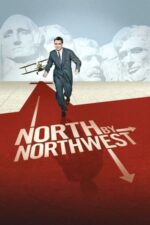The Tightrope Walk: Exploring the Undercover Agent in Cinema
Isn't there something inherently fascinating about someone living a lie? That constant tension, that precarious balance between maintaining a facade and risking exposure – it’s fertile ground for compelling storytelling, and nowhere is this more evident than in films featuring undercover agents. It’s a trope as old as espionage itself, but the way filmmakers have explored it has evolved dramatically over time, reflecting our anxieties about trust, identity, and the blurred lines between right and wrong.
Think about it: the very premise of an undercover agent – infiltrating a group while concealing their true allegiance – is built on deception. It’s a psychological tightrope walk, and the best films really dig into that internal conflict. "Cutaway," with its skydiving team setting, does this brilliantly. The visual metaphor of freefall perfectly encapsulates Victor Cooper's situation: he's constantly risking everything, both physically and emotionally, as he tries to maintain his cover while battling a growing sense of camaraderie with the people he’s supposed to be investigating. It reminds me a little of "Point Break" – that film also beautifully captured the allure of a dangerous subculture, making it even harder for the protagonist to stay detached.
But the concept isn't just about action sequences (though those are certainly fun!). “The Silent War” offers a particularly intriguing twist on the formula. A blind piano tuner recruited as a spy? It’s an ingenious way to explore how perception and deception intertwine, forcing us to question what it truly means to "see" and understand the world around you. The film isn't just about espionage; it's about resilience and finding strength in unexpected places – a powerful message that resonates beyond the specific historical context of 1950s China.
Then there’s the fascinating duality explored in “Wild Side.” A seemingly ordinary accountant leading a double life as an escort? It highlights how easily identities can be constructed and manipulated, blurring the lines between professional obligation and personal desire. It's a reminder that anyone, regardless of their outward appearance or profession, could be living a secret life.
And let’s not forget films like “Hidden Blade,” which demonstrate how this trope has been utilized across cultures and time periods. The film’s depiction of covert agents operating during wartime underscores the sacrifices made in the name of patriotism – a theme that continues to resonate today.
The undercover agent narrative isn't just about thrilling plots; it's a mirror reflecting our own anxieties about trust, loyalty, and the fragility of identity. It invites us to consider: how far would you go to protect a secret? And what happens when the lines between your true self and your assumed persona begin to blur? That’s what makes these films so endlessly compelling – they tap into something deeply human, even as they deliver pulse-pounding action and suspense.







































